- The Future Is LA
- Posts
- Oops! City Council helped pass SB 79
Oops! City Council helped pass SB 79
...and in the process showed both our ugly segregationist past and our promising prohousing future.
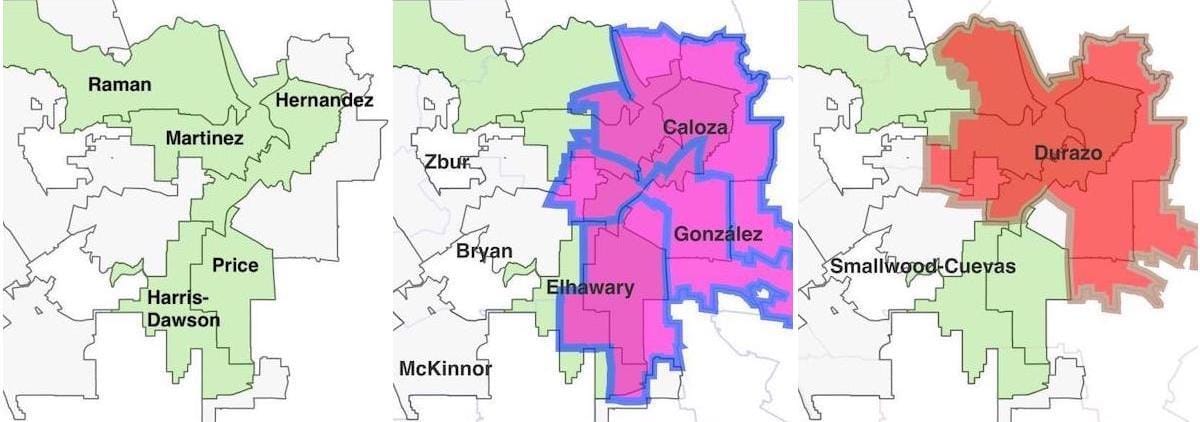
Green: LA City Council support
Pink: CA Assembly support
Red: CA Senate support
It came as no surprise when LA City Council voted last month to symbolically oppose SB 79, the state bill that would require cities to legalize apartment buildings around train stations. LA politicians, like those in plenty of other cities, have a long tradition of opposing bills they perceive would take away their control over real estate decisions. Over the years, City Council has passed resolutions against SB 827, SB 50, SB 9, and plenty of other proposals to override local zoning. Most of the resolutions passed unanimously.
Of course, this is mostly theater. The SB 79 resolution, like all its predecessors, is non-binding - the votes that matter take place in Sacramento. And as part of the theater, all the players gave their reactions to the media after the vote. Scott Wiener, the bill’s author, said Council was offering “no real solutions to address our housing shortage”. California YIMBY, one of the bill’s sponsors, released an angry statement denouncing Council’s “cowardice”. Neighborhood associations expressed their gratitude to Council.
But one crucial part of the script was different this time. The Council vote was closely divided, 8-5 with two abstentions, meaning the resolution passed with zero votes to spare. And it turns out that while supporters in Sacramento were publicly expressing outrage, privately they celebrated the five “no” votes and went into action. In an interview with bill co-sponsor Streets For All after SB 79 passed, Scott Wiener told the story:
The day that the LA City Council voted, and people were like, “Oh no, they opposed it”, I’m like, “No no no, this is great. I want a spreadsheet showing, of those five councilmembers who voted no on that resolution, [which state legislators] they overlap with”. And we got that, and we didn’t even need it because the members all knew. When I would meet with members, and they learned that whoever was either overlapping or impactful, Marqueece Harris-Dawson or Hugo Soto-Martinez or whoever it was, they would be like, “Wait, the councilmember stood up on this”, and that created space for members to [vote for] it. And so I think those five councilmembers being willing to stand up and oppose the resolution actually sent a shock wave through the assembly…and I will say Imelda Padilla definitely played her part.
What a disaster for City Council. They tried to send a strong message to Sacramento, one they hoped would sway some legislators to vote against the bill. A message was received, just not the one written in the resolution. LA has been so vehemently, unanimously opposed to state legislation for so long that when cracks in the consensus developed, the cracks are what got Sacramento’s attention. And as Wiener tells it, the divided vote actually persuaded more state legislators to support SB 79.
Mapping the vote
But perhaps you don’t believe Scott Wiener. You think he’s just engaging in some victory-lap rewriting of history. Surely this overlapping business couldn’t be true. Well, have I got some maps for you.
First, some background: the state legislators who represent LA in Sacramento have always lagged behind their Bay Area colleagues on housing. Whether NIMBYism is stronger here, or the housing crisis got bad later here, LA legislators historically have been much more likely to vote against housing bills than their Bay Area counterparts. The pattern held with the SB 79 vote:
It gets worse if you look specifically at the state legistators who represent the City of LA. Only three out of our 11 assemblymembers and one out of our seven state senators voted for SB 79. Brutal. But check out which ones voted yes, and you can see what Wiener is talking about.
Here are the districts of the five city councilmembers who voted against the city resolution because they supported SB 79:
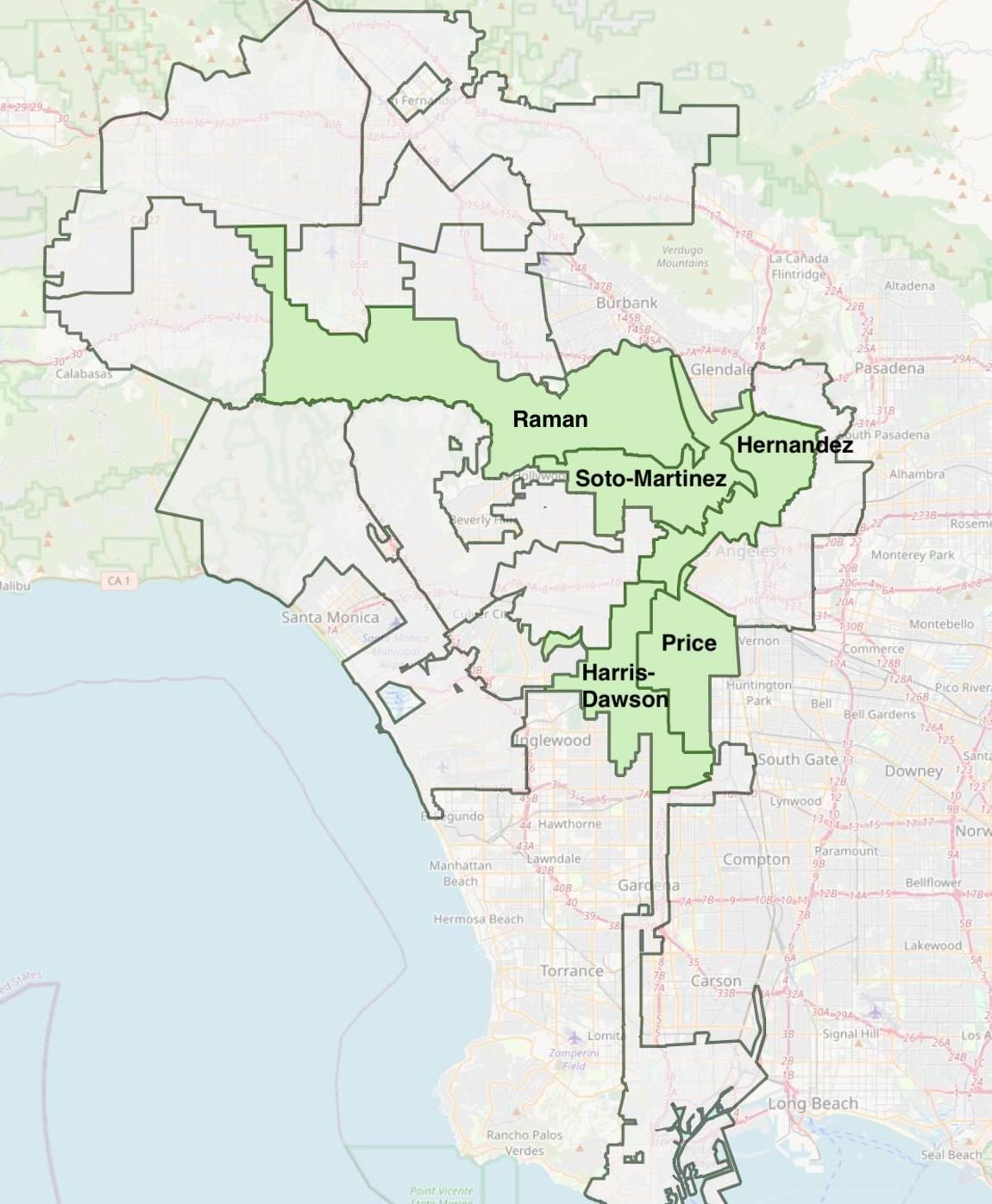
Here are the districts of the three assemblymembers (Jessica Caloza, Mark Gonzalez, Sade Elhawary) from LA who voted for SB 79, overlaid onto the City Council votes. Assembly “yes” votes are in pink:
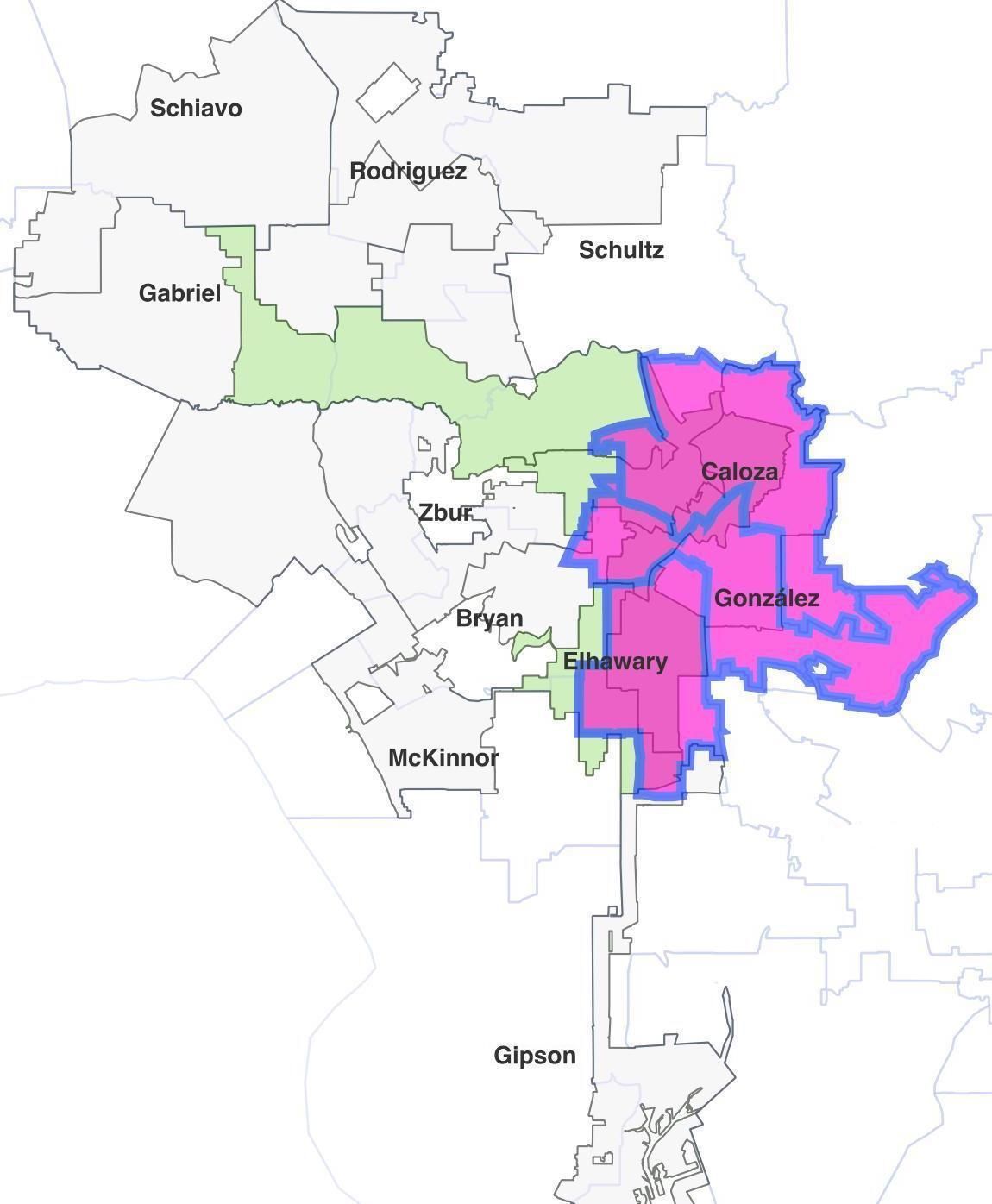
Pink: State assemblymembers voting for SB 79
Green: LA city councilmembers supporting SB 79
And here is the district of the only state senator (Maria Elena Durazo) from LA who voted for SB 79, in red:
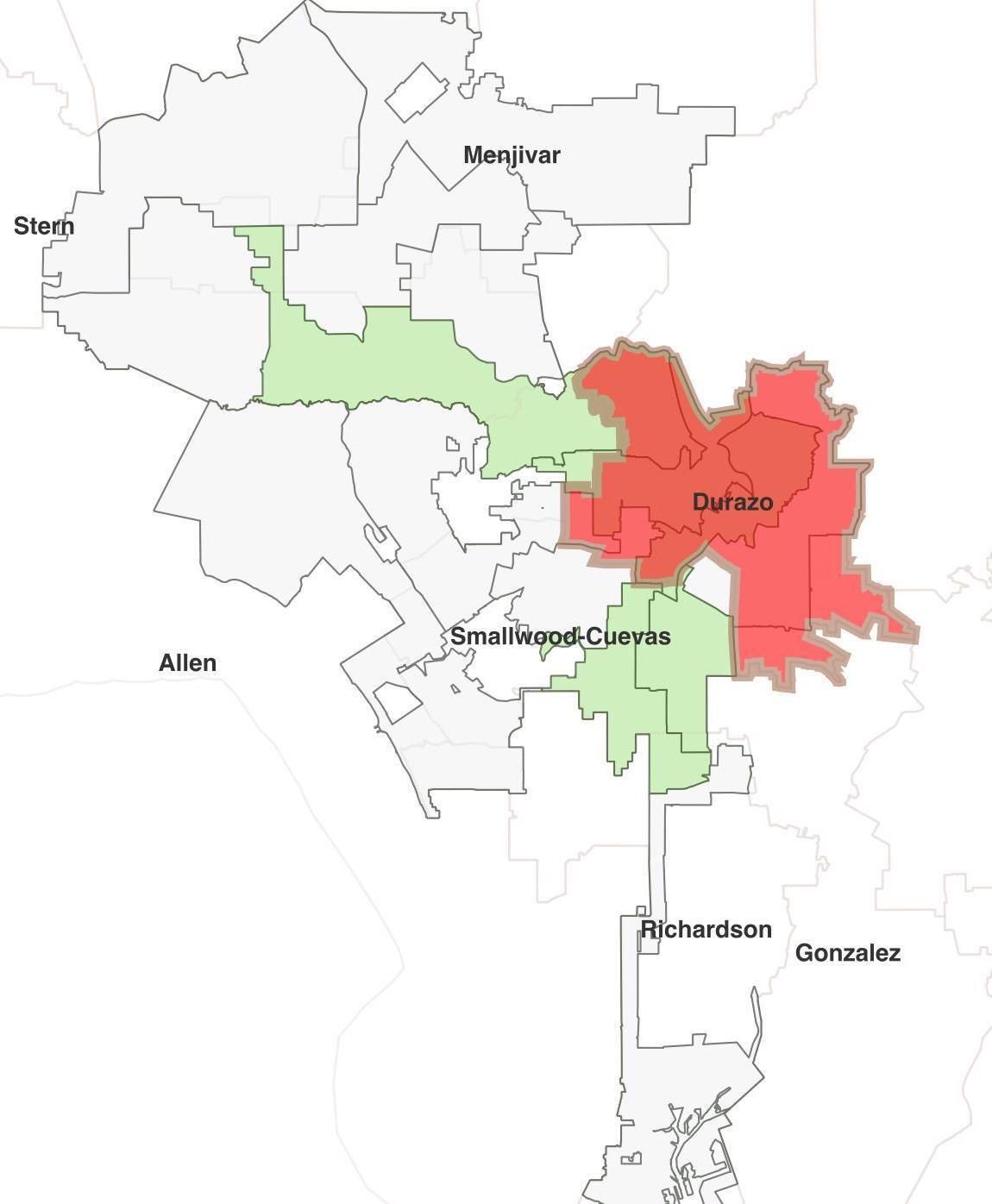
Red: State senators voting for SB 79
Green: LA city councilmembers supporting SB 79
The yes votes at the state level line up almost exactly with the yes votes at the city level. No state representative supported the bill without an overlapping city councilmember doing the same. You can see Wiener’s story playing out - maybe Assemblymember Jessica Caloza gained confidence from Councilmember Hugo Soto-Martinez’s vote, or maybe Assemblymember Sade Elhawary was inspired by the vote of Councilmember Marqueece Harris-Dawson.
The past: a legacy of segregation
The one councilmember whose vote doesn’t overlap with their corresponding state legislators is Nithya Raman, whose district is covered at the state level by several white representatives who all opposed the bill. Why do I mention their race? Because not a single white elected official at the city or state level who represents the City of LA voted to support SB 79. Not one. Which is particularly shameful considering white people literally invented zoning in order to keep people of color out of their neighborhoods. Zoning in LA is so strict/successful that despite being one of the most racially diverse metropolitan areas in the country, it is the sixth-most segregated. White officials who opposed SB 79 continued the long tradition of people like them voting to perpetuate the segregated status quo. Let’s put them up on the board:
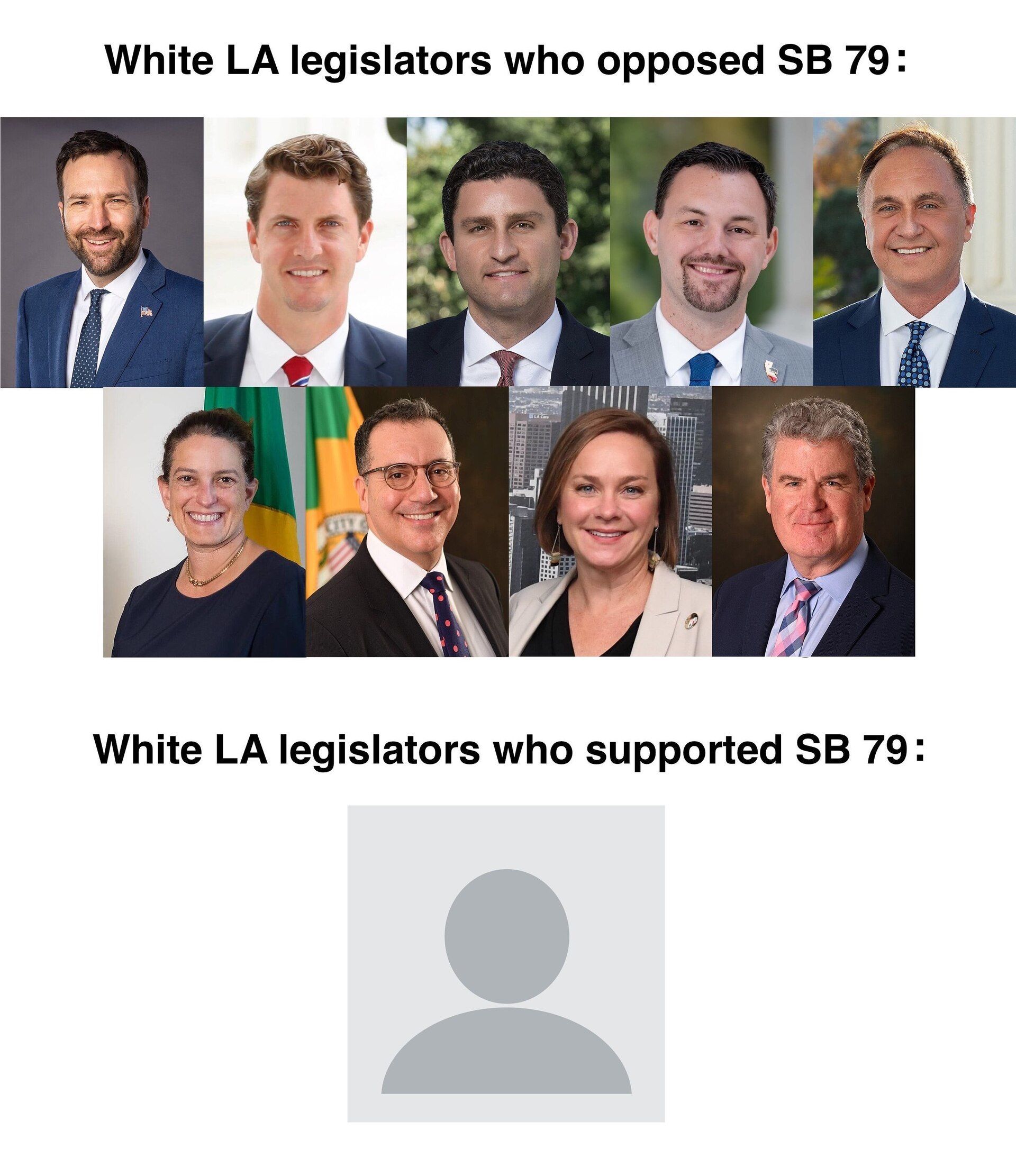
Top row of portraits is state legislators, bottom row is LA City Councilmembers. All represent part of the City of LA.
The future: mapping LA’s prohousing core
What’s going on in Central LA, South LA, and the Eastside that would lead almost all their legislators at the city and state level to support a controversial upzoning bill? Are these politicians just taking cues from each other, or is something deeper going on? One clue can be found in a UCLA report from last month called “A Large Majority of Angelenos Want More Apartments — Even on Single-Family Streets”. UCLA polled 1,500 Angelenos on their housing views and then mapped the results by city council district. Check out where people said they support allowing apartment buildings in their own neighborhood (left) and on “streets that primarily have single-family houses” (right):
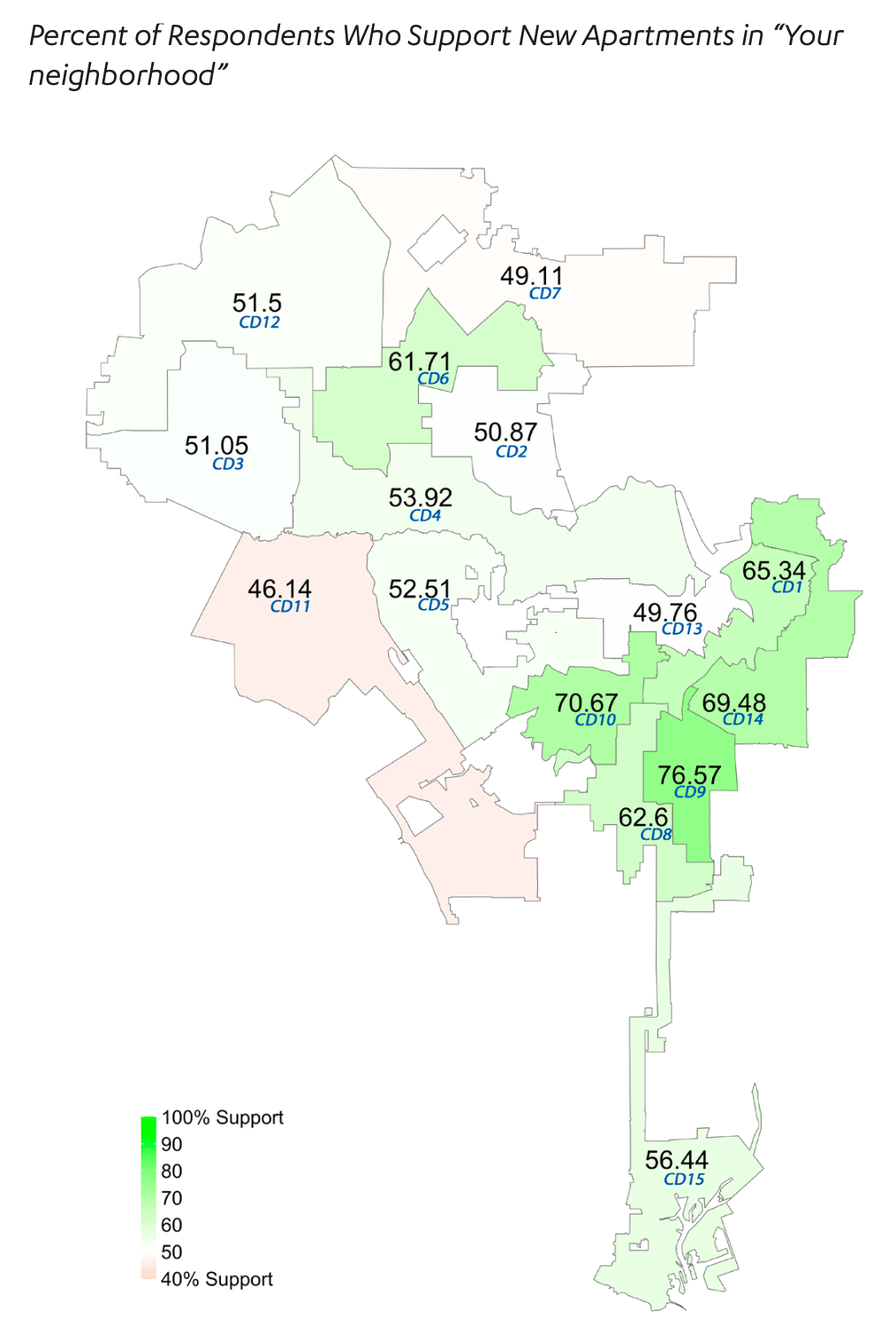 Support apartments in your neighborhood | 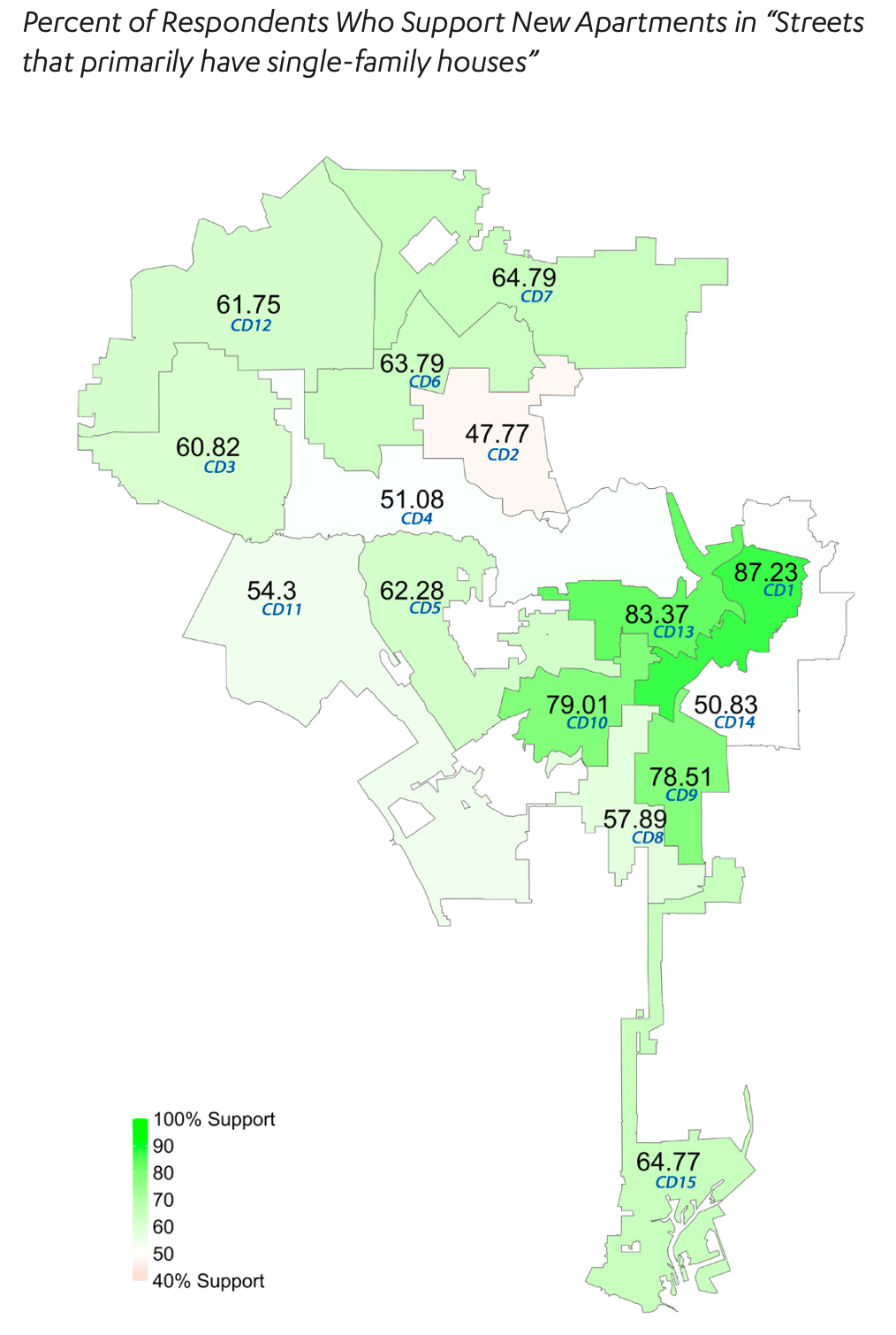 Support apartments in single family zones |
Central LA, South LA, and the Eastside are where voters have the most prohousing views. This is the city’s YIMBY core. Maybe that shouldn’t be surprising, since those areas are also where apartments are already legal to build, which means they have the most renters. The politicians that represent these voters are simply serving them by supporting prohousing policies that benefit renters. (And the politicians that represent parts of town dominated by homeowners - the Westside, the Valley, and San Pedro - are supporting policies that they perceive benefit homeowners.)
Seeing politicians in the YIMBY core of the city responding to their voters - you know, doing democracy - gives me hope that the prohousing movement in LA can become a truly popular movement with electoral power. Many elites are opposed to or skeptical of prohousing policies (see white faces above), but a bunch of renters have turned their representatives into YIMBYs - or elected prohousing candidates in the first place. In a city where most people are renters, maybe the way forward for the prohousing movement will be through the ballot box.
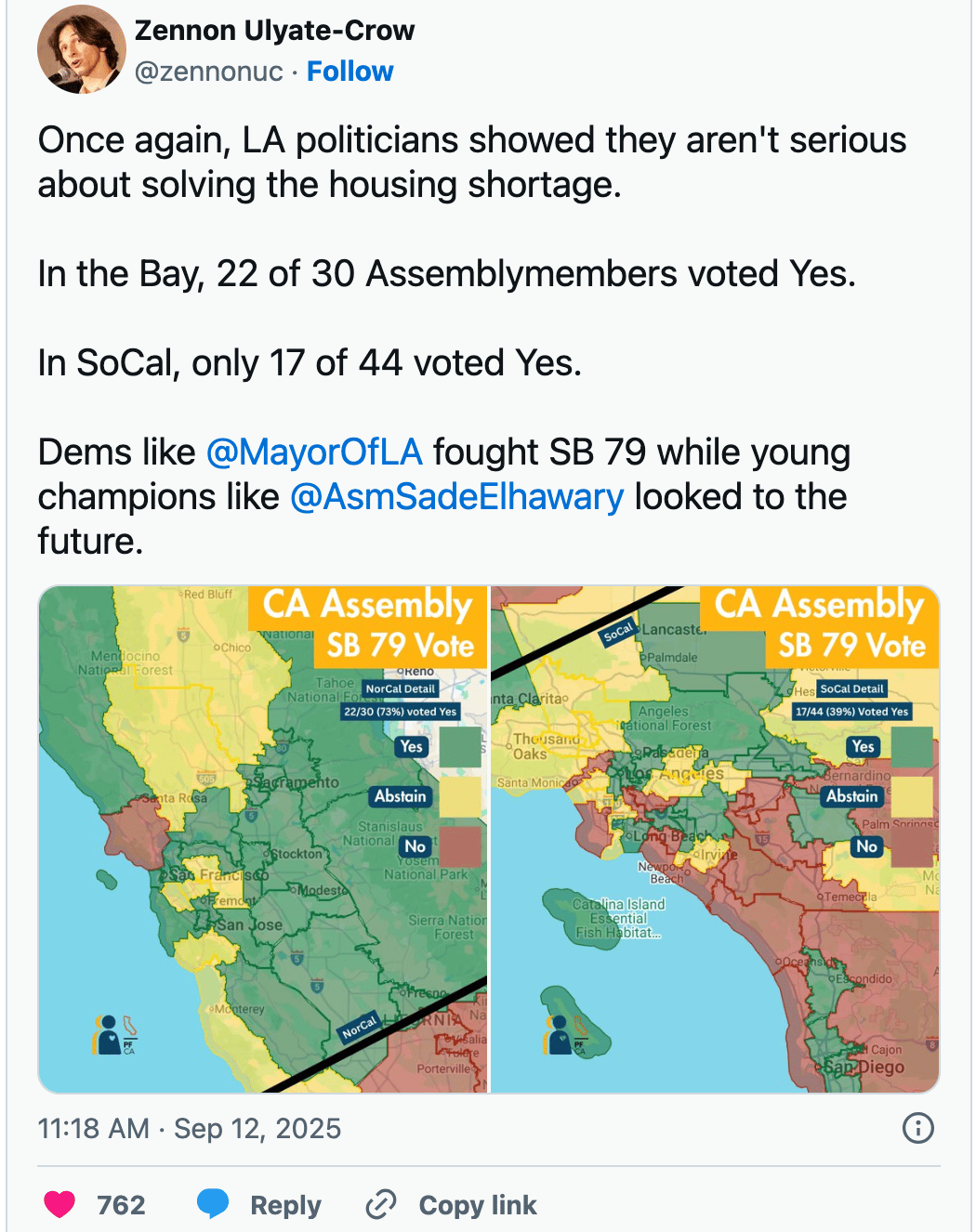
Reply